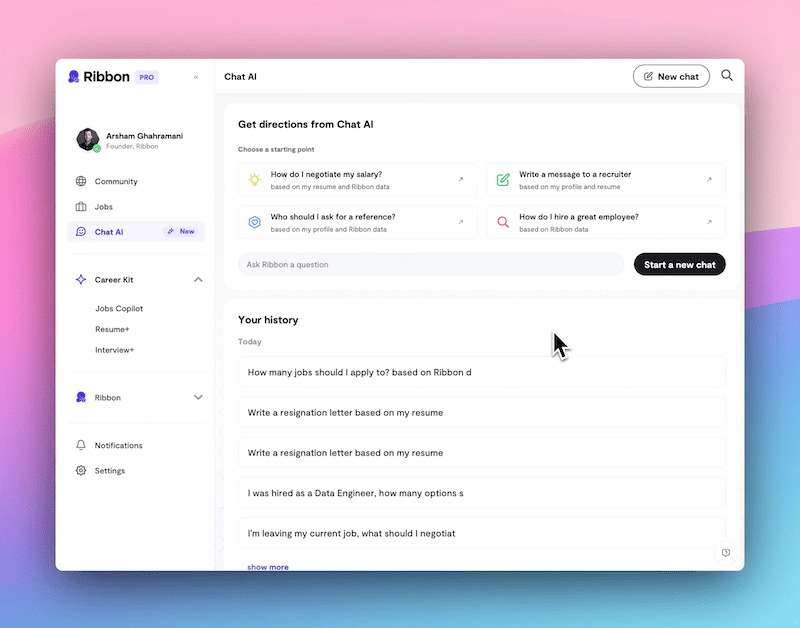How to Adopt Recruitment Process on The rise of Remote Work

Introduction
The rise of remote work in recent years has transformed the traditional office environment, how businesses run, and how employees work. Companies must modify their hiring procedures to take advantage of remote work as this flexible work model gains in popularity. In this article, we explore the specifics of setting up a hiring procedure that meets the growth of remote work, helping businesses attract top talent and succeed in the modern digital era. Find helpful tips and useful strategies for remaining in the dynamic world of remote recruitment by exploring the following sections.

Understanding the Impact of Remote Work on Recruitment
Remote work has become known as a game changer, completely changing the traditional recruitment landscape. The impact on recruitment strategies and practises is significant as companies increasingly embrace remote work models. This article examines how remote work has transformed recruitment, allowing organisations to tap into an international workforce and create more flexible work environments. Let's look at the main effects of remote work on recruitment:
Expanded Talent Pool: Remote work reduces geographical barriers, allowing businesses to tap into a wide range of talent from around the world. Employers can now hire people based on their skills and qualifications, rather than their proximity to the office.
Shift in hiring strategies and job postings: Companies need to update their job postings to highlight remote work factors and attract qualified candidates.
Enhanced Flexibility: Remote work gives both employers and employees more flexibility. Recruitment strategies can be tailored to attract people looking for flexible work schedules, resulting in higher job satisfaction and candidate interest.
Increased Productivity: According to studies, remote workers are frequently more productive. This shift has prompted employers to place a greater emphasis on reviewing the ability to work remotely during the recruitment process, as well as using productivity-enhancing tools and technologies.
Improved Work-Life Balance: Remote work promotes a happier work-life balance, which appeals to candidates who value family, personal interests, or location independence. Companies that prioritise work-life balance in their recruitment efforts have a better chance of attracting top talent looking for this lifestyle.
Cost Savings: Remote work has the potential to save both employers and employees resources. Companies can save money on overhead costs associated with physical office spaces, while employees save money on commuting and other expenses. These cost savings can be promoted as appealing benefits during the hiring process.
These impacts highlight the importance of organisations adapting their recruitment strategies to effectively accept remote work. Companies can attract and retain top talent in a highly competitive job market by using the benefits of expanded talent pools, enhanced flexibility, increased productivity, improved work-life balance, and cost savings.
Which tool you can use to Increase Productivity and cost saving?
Use Noota, an AI meeting tool to Record your meetings but also delivers crucial insights from the interview. As a recruiter, use Noota's capabilities to effectively evaluate candidate potential, minimising your time and effort.

Developing Remote-Friendly Job Descriptions
Highlighting remote work aspects in job postings: Candidates seeking remote opportunities get interested in by highlighting the benefits of remote work, such as flexibility and work-life balance.
Emphasizing skills for remote collaboration and communication: Remote-friendly job descriptions should emphasise skills such as effective communication, knowledge of collaboration tools, and self-discipline.
Setting clear expectations for remote work requirements: Outline the remote work requirements, outcomes, and any tools or technology that candidates should be familiar with.
Virtual Recruitment and Interviewing
Utilizing video conferencing tools for interviews: Employers can assess candidates' communication skills and compatibility for remote work by conducting virtual interviews.
Conducting remote assessments and simulations: Employers use online assessments to evaluate candidates' problem-solving abilities, self-discipline, and remote work capabilities.
Assessing remote work capabilities and self-discipline: Employers should assess candidates' ability to work independently, effectively manage their time, and remain motivated in a remote work environment.
Use Noota an AI virtual meeting assitant tool and analyze candidate capability by using conversion Intelligence.

Remote Onboarding and Integration
Preparing comprehensive remote onboarding programs: Remote onboarding should provide new hires with the information and resources they need to succeed in their remote roles.
Providing necessary equipment and technology: Providing remote employees with the tools and technology they need to do their jobs effectively.
Establishing virtual mentorship and support systems: Remote employees feel more connected and supported when virtual coaching programmes and support networks are available.
Nurturing a Remote Work Culture
Encouraging communication and collaboration in virtual teams: Collaboration among teams is improved through encouraging regular communication and providing platforms for virtual collaboration.
Fostering a sense of belonging and team spirit: Virtual team-building activities and initiatives create a strong remote work culture.
Recognizing and rewarding remote employees' contributions: Acknowledging and rewarding the hard work of remote employees boosts employee motivation and engagement.
Consider Noota, an AI-enabled meeting tool, an AI-enabled meeting tool to Follow real-time coaching for easy onboarding

Overcoming Challenges in Remote Recruitment
Managing time zone differences and global teams: To deal with different time zones and facilitate collaboration, businesses must develop effective communication strategies.
Building trust and maintaining accountability remotely: Transparency, clear expectations, and regular check-ins all contribute to the development of trust and accountability in remote work relationships.
Addressing isolation and social interaction challenges: The separation can be overcome by implementing online integration activities and providing networking opportunities for remote workers.
Continuous Evaluation and Improvement
Collecting feedback from remote employees and applicants: Gathering feedback helps in the identification of areas for improvement in the remote recruitment process and remote work experience.
Monitoring and adapting remote recruitment processes: Evaluating the success of remote recruitment strategies on a regular basis and making necessary changes based on industry best practises.
Incorporating best practices and industry trends: Keeping up to date on emerging trends in remote work and recruitment assists organisations in optimising their remote hiring processes.
Organize your future strategies by Highlight and clip essential moments for future reference and sharing effective HR strategies by Noota.

Conclusion
Companies must adapt their recruitment processes to the rise of remote work in order to attract and hire top remote talent. Organisations can successfully navigate the changing landscape of remote recruitment by understanding the impact of remote work on recruitment, developing remote-friendly job descriptions, implementing virtual recruitment and onboarding strategies, developing a remote work culture, overcoming challenges, and continuously evaluating and improving processes.
FAQ
1. How can companies effectively evaluate candidates' remote work skills?
Employers can assess remote work skills through virtual interviews, remote assessments, and simulations that test problem-solving abilities, self-discipline, and communication skills.
2. How can companies address time zone differences in global remote teams?
Effective communication strategies, flexible work arrangements, and leveraging technology tools can help companies manage time zone differences and facilitate collaboration in global remote teams.
3. What can companies do to foster a sense of belonging in remote teams?
Virtual team-building activities, regular communication, and initiatives that promote inclusivity and connection can foster a sense of belonging in remote teams.
4. How can companies ensure accountability in remote work relationships?
Establishing clear expectations, providing regular feedback, and utilizing project management tools can help maintain accountability in remote work relationships.
5. How important is continuous improvement in remote recruitment?
Continuous evaluation and improvement are crucial to optimize remote recruitment processes, adapt to emerging trends, and enhance the remote hiring experience for both employers and candidates.
Leverage your Interview Data
AI interview notes, scorecard, follow-up, ATS integration, and more...
Related articles

Forget note-taking and
try Noota now
FAQ
In the first case, you can directly activate recording as soon as you join a videoconference.
In the second case, you can add a bot to your videoconference, which will record everything.
Noota also enables you to translate your files into over 30 languages.

.svg)
.svg)

.webp)

.png)


.svg)
